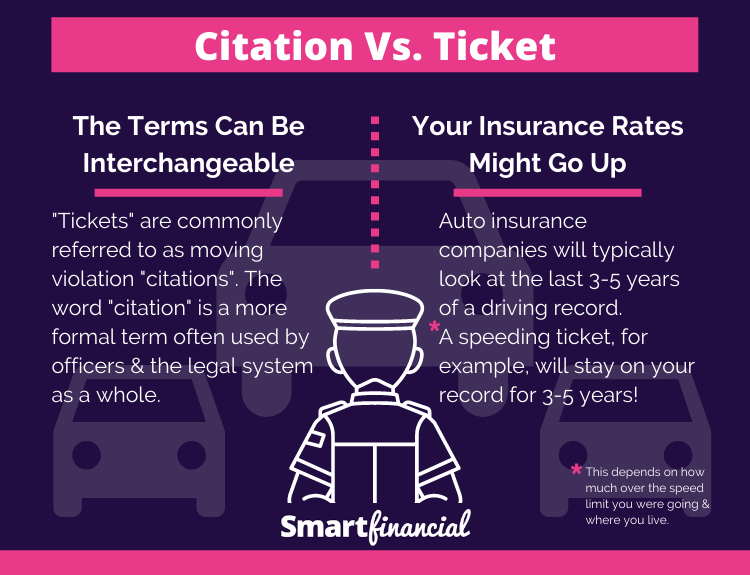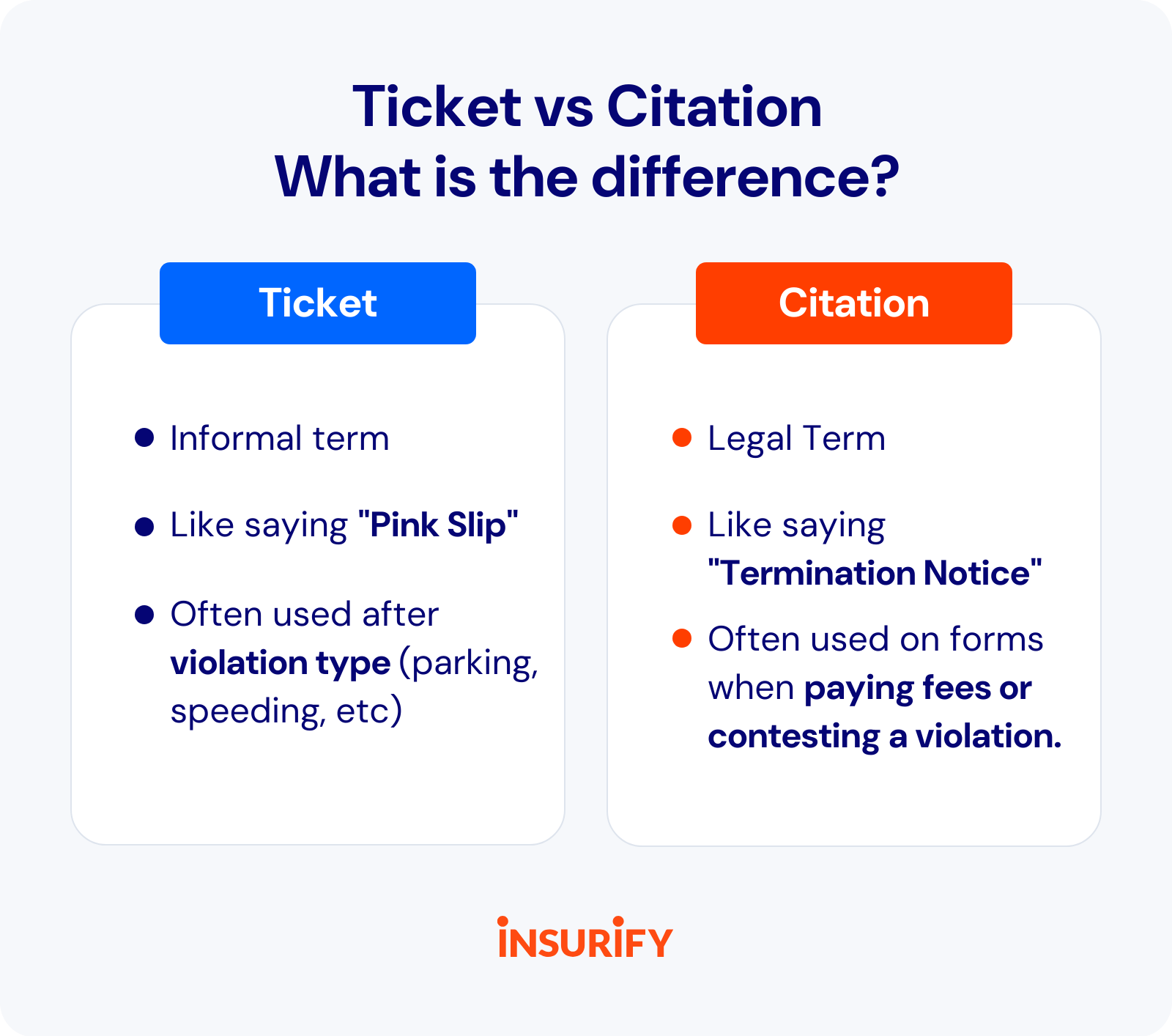When you hear the words “ticket” and “citation,” you may think they mean the same thing. However, they are different in many ways. Understanding these differences can help you know what to expect. In this article, we will explore both terms. We will look at their meanings, uses, and how they affect you.
What is a Ticket?
A ticket is usually a document. It tells you that you did something wrong. Most often, people get tickets for traffic violations. For example, you might get a ticket for speeding. The police officer writes it down on the ticket.
Types Of Tickets
There are different types of tickets. Here are a few common ones:
- Traffic Tickets: These are for breaking traffic laws.
- Parking Tickets: These are for parking in the wrong place.
- Event Tickets: These let you enter concerts or games.
Traffic Tickets
Traffic tickets are the most common type. If you speed or run a red light, you may get one. The officer will pull you over. They will write you a ticket. It will have details like:
- Your name
- Your vehicle’s information
- The violation you committed
- The date and time of the violation
You must pay the fine or fight the ticket in court.
Parking Tickets
Parking tickets are different. These tickets are given when you park in a forbidden area. For example, you might park in front of a fire hydrant. The officer will write you a ticket. You will need to pay a fine. It may be higher than a traffic ticket.
What is a Citation?
A citation is similar to a ticket but has a different purpose. Citations often serve as warnings. They may not always require you to pay a fine. Citations can come from police officers or other authorities.
Types Of Citations
Just like tickets, there are various types of citations. Here are some examples:
- Criminal Citations: These are for minor crimes.
- Civil Citations: These are for breaking local laws.
- Citations for Offenses: These are for offenses like littering.
Criminal Citations
Criminal citations are given for minor crimes. For example, you might get one for public intoxication. The officer may choose to write you a citation instead of arresting you. This allows you to avoid jail time.
Civil Citations
Civil citations are for breaking local laws. For example, if you do not clean up after your pet, you may receive one. The citation serves as a warning. You might have to pay a fine, but it may not be severe.
Key Differences Between Tickets and Citations
Now that we understand the meanings, let’s look at some key differences.
| Aspect | Ticket | Citation |
|---|---|---|
| Purpose | To impose a fine | To warn or inform |
| Severity | Usually for serious violations | Usually for minor offenses |
| Consequences | Must pay fines or go to court | May not require payment |
| Authority | Usually from police | Can be from other officials |
Why Do These Differences Matter?
Understanding these differences is important. It can affect how you respond. If you receive a ticket, you must act quickly. You may need to pay a fine. If you get a citation, you may have more options. You might not have to pay anything.
What To Do If You Get A Ticket
If you receive a ticket, here are some steps to take:
- Read the ticket carefully.
- Check the due date for payment.
- Decide if you want to pay or contest it.
- If contesting, gather evidence.
- Appear in court if necessary.
What To Do If You Get A Citation
If you receive a citation, follow these steps:
- Read the citation carefully.
- Understand what it is for.
- Check if any action is needed.
- Keep it for your records.

Credit: insurify.com
Conclusion
In summary, tickets and citations are different. Tickets usually mean you broke a law. You may have to pay a fine. Citations often serve as warnings. They may not require payment. Knowing these differences can help you respond correctly. Always read any document carefully. Make sure you understand what it means for you.

Credit: smartfinancial.com
Final Thoughts
Remember, if you get a ticket or citation, stay calm. Take your time to decide what to do. If you are unsure, seek help. Understanding these documents is crucial. It can save you money and stress in the long run.















Leave a Review